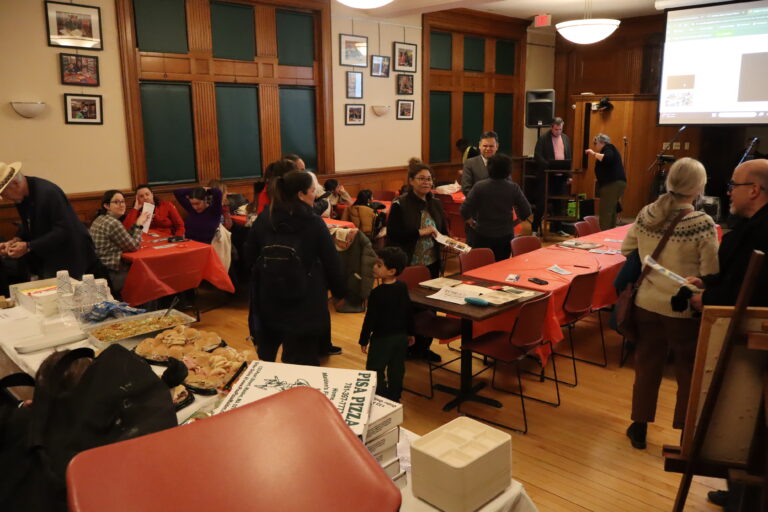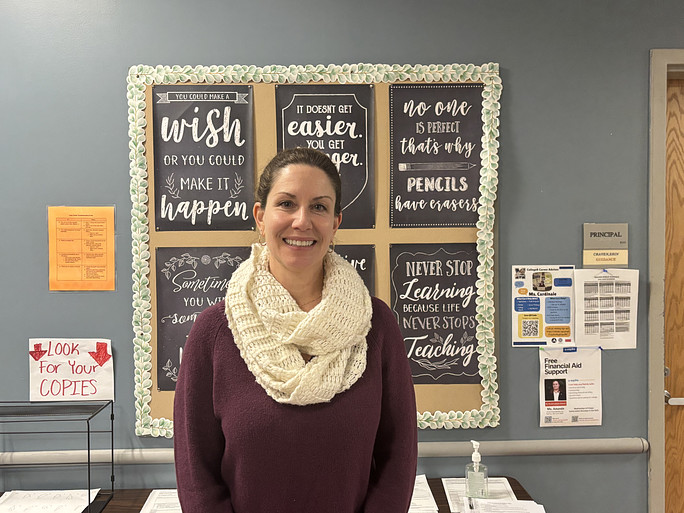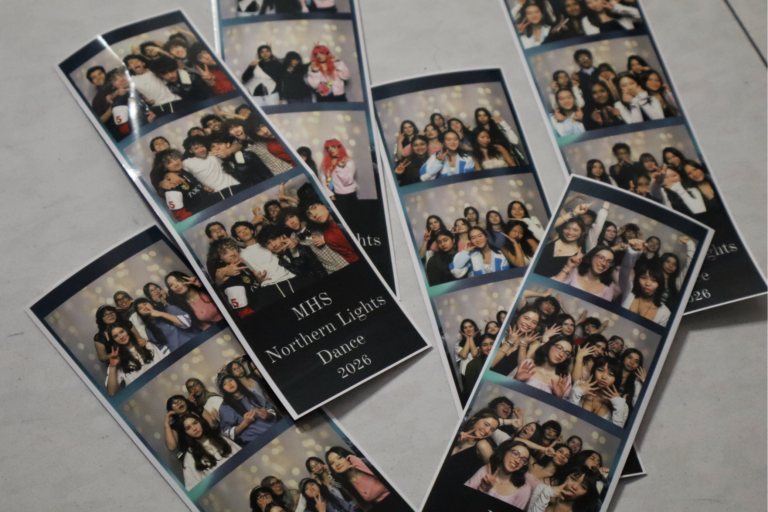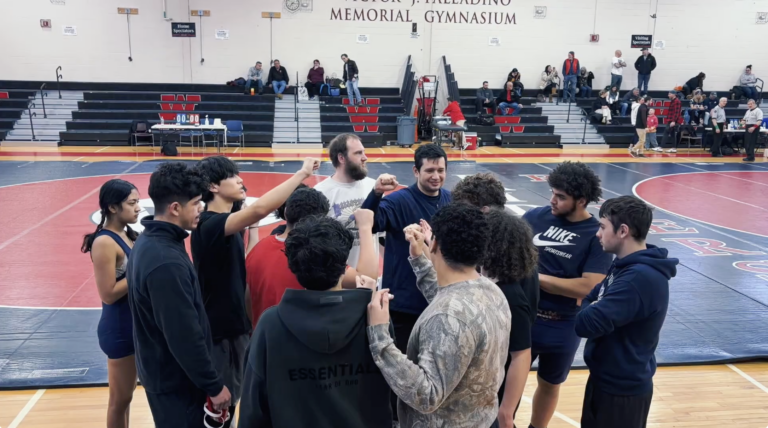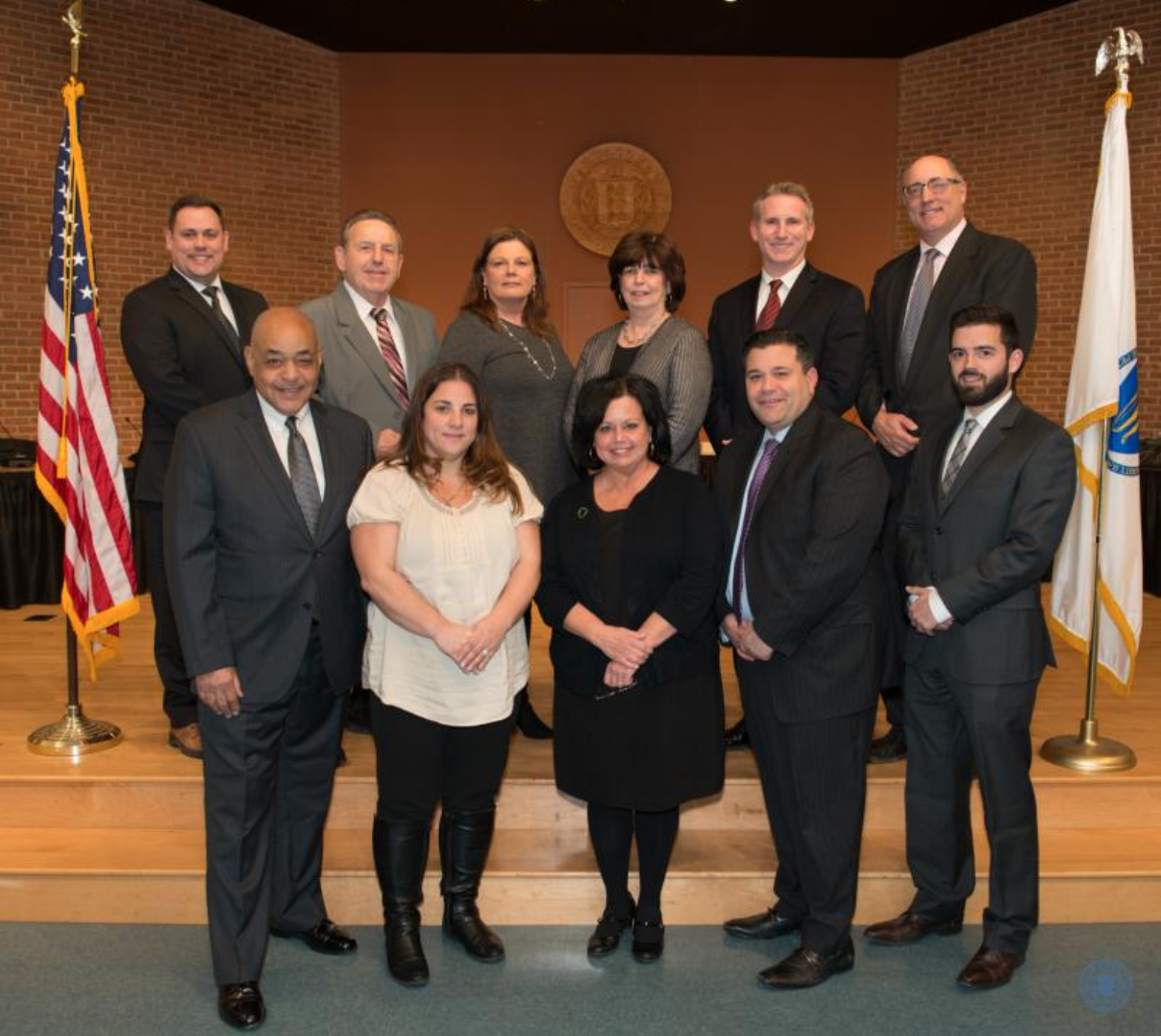
On the topic of diversity, both candidates express its importance in the government. Photo taken from the Malden City website.
The first of two mayoral debates between candidates John Matheson, Malden City Councilor for Ward 3, and Gary Christenson, Mayor of Malden, took place at the Malden Senior Center on September 25th. This is the first time since Christenson’s campaign against Craig Spadafora in 2011 that Christenson is running against an opponent for mayor.
Around five pm, before the debate began, supporters for both Matheson and Christenson gathered on Pleasant Street holding signs and cheering on their candidates. Finally, at six pm, the audience was granted permission to enter the hall.
For the debate, a panel was created to pose questions to the candidates consisting of representatives from organizations within Malden. The panel consisted of: Jim Mitchel Jr. from the Malden Advocate, Marcia Manong from the Massachusetts Senior Action Council, MHS freshman Henry Zhao from the Greater Malden Asian American Community Coalition, and Sergiu Parfeni from the Malden Chamber of Commerce. Each were assigned a number from one to four respectively during proceedings. Alongside this, Guillermo Hamlin acted as moderator.
A coin toss decided that Matheson would speak first followed by Christenson. During proceedings they are referred to as candidate one and candidate two, respectively. Each would have two minutes to respond to questions posed by the panel or choose to refute their opponent’s points from previous questions. They will also have five minutes for opening remarks as well as closing remarks.
Altogether there were fourteen questions.
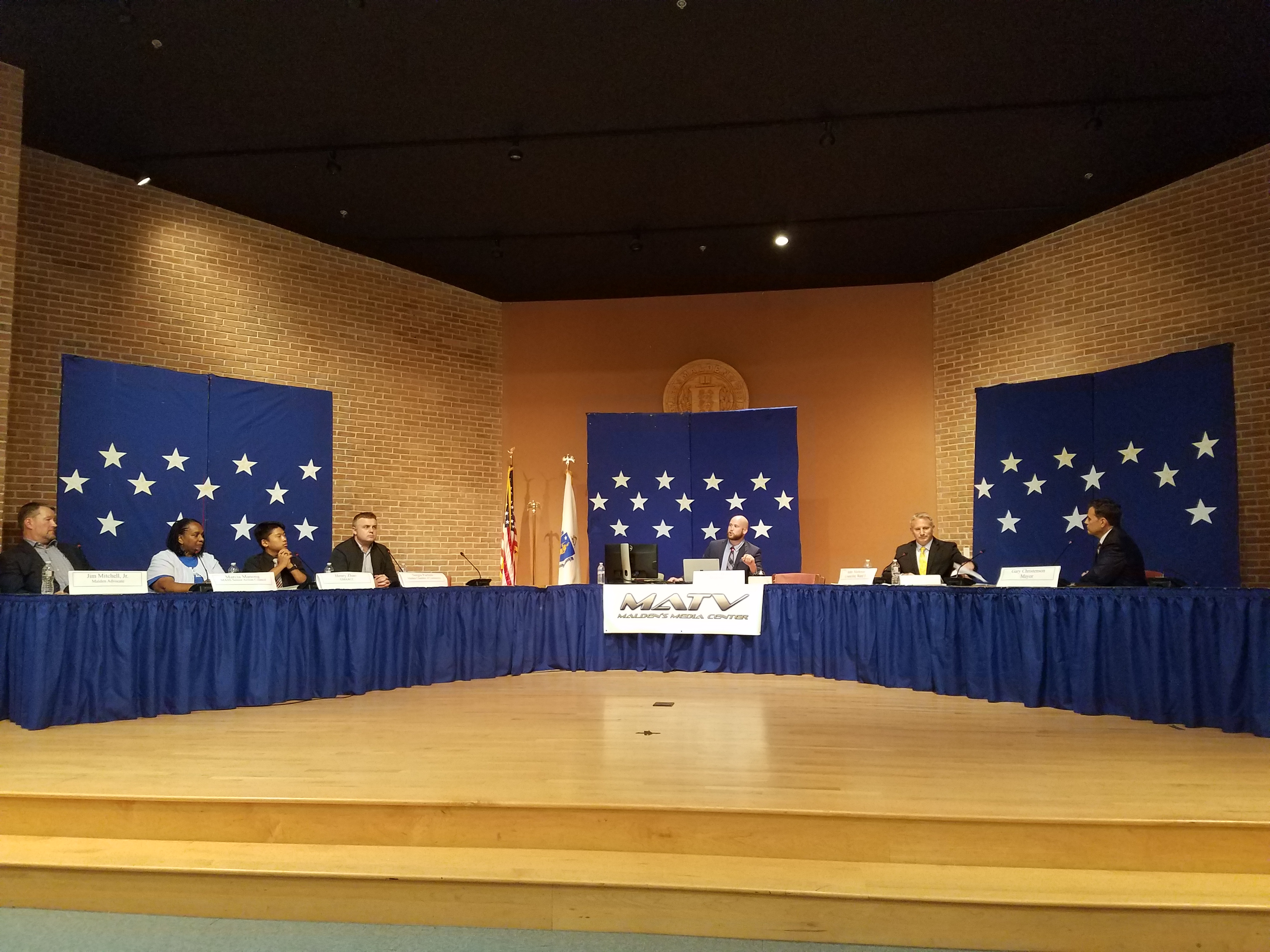
Question 1
Panelist Jim Mitchel Jr. began the debate asking about the blue bags which have been “going on for the past ten years” and asks for the candidates’ future plans regarding blue bags. Malden is considered a “Pay as You Throw” (PAYT, as referred to during the debate,) city in which blue bags must be bought in order for its citizens to have their trash picked up by the city disposal. In addition, recycling must be separated into different categories in order for it to be picked up; mixed recycling would result in rejected trash. It is important to note that not all Malden residents, specifically those in apartment complexes and condominiums, need worry about the trash pick up system, though the question of the blue bags are centered around the costliness for homeowners.
Matheson began by citing 71% of the public’s petition for a new trash disposal system ten years ago that was not resolved by Christenson during his time as mayor. Matheson proposes that the blue bag system be replaced with a “fair market value for one barrel” in which residents would be able to mix their recycling and still have it be accepted by the disposal company. Mainly, Matheson suggests that Christenson’s plan would result in a tax increase that would forbid residences to opt out of the barrel system which can be a burden for Malden families and those on a fixed income.
Christenson then followed with a response that all current plans created by himself and colleagues about trash, span fifteen pages on the Malden City website about the complexity in changing the trash system and that he will “never look at solid waste again” after struggling to change the system. He also points out that the trash collection system took into account people such as the elderly in which an exemption was implemented, as well as the fact that on March 5th, Matheson promised to have “[a new plan] within ninety days” but failed to deliver.
Question 2
Marcia Manong then posed her question about affordable housing after the Malden Housing Needs Assessment was released the past June detailing that “lower-income households in Malden occupy market-rate units for which they pay more than 30% of their income and are therefore cost burdened” indicating the need for more affordable housing. With the majority of the population of Malden being considered low-income, seniors especially, Manong asks what specifically the candidates plan for affordable housing that include “the amount of housing that seniors can afford.”
Christenson began by explaining the work done with the Malden Redevelopment Authority (MRA, as referred to in the debate). Three initiatives were proposed: an affordable housing trust fund in which money would be accessed through the mitigation fund, an inclusionary zoning financial feasibility analysis, and a security deposit pilot program.
Matheson followed, bringing up that the housing authority recommended that Malden should build another 3,852 apartments and that there is “plenty of room for parking.” However, he raised concerns since they were hired by Christenson in order to build more housing in October. Matheson then explained that there has been a “boom” in market rate apartments that are otherwise unaffordable and have “done a depression on [Malden’s] Chapter 70 fund.” The Chapter 70 fund regards the funding of public schools through the state, which depends on each community’s property value and residents’ income to determine funding. Overall, Matheson believes that open spaces and affordable housing is needed and in demand by the public.
Question 3

Panelist Henry Zhao then posed the idea of community gardens being important locations for the development of youth, and being environmentally positive. Zhao asked for their opinions on implementing more community gardens.
Matheson began, giving credit to his opponent’s efforts in expanding community gardens over the past years, and mentioned his own involvement in the beautification and environmental development in Malden. Overall, Matheson states that he will follow the community’s desires in environmental involvement which includes possible community gardens and tree planting streetscape.
Christenson stated chiefly that Malden needs more community gardens and is in the process of adding two more to the previous two that existed. Christenson also refutes that “the operative word here is ‘plan’,” since Matheson should be submitting plans not only for community gardens but other topics such as affordable housing.
Question 4
Panelist four, Sergiu Parfeni, posed the question about the National Grid, in reference to the empty field by the MBTA station that is currently owned by National Grid. Parfeni specifically asked for any plans or timelines that are being made in this regard.
Christenson began with the “Field of Dreams” project that was meant to turn the field into a professional baseball field in 2017 which was not set in action because “the Boston Red Sox did not think that it fit with what they are trying to do.” However, Christenson explained that there are efforts to convert the area into open space for soccer, rugby, lacrosse but also retail and restaurants in a hotel, with a recent meeting to find out where the assigned committee is in the process going forward.
Matheson began his time stating that he voted in favor of the housing development incentive plan to bring more apartments to the area. However, the limitations of the incentive plan means that the housing developers that are “scrambling” to get into Malden are also not paying the full share of taxes, ultimately leaving Malden with less money than it should be, and leaving the land unused for extended periods. Matheson proposes a plan for a station landing that will “attract consumers and real revenue.”
Question 5
Returning to panelist one, Mitchel asks about whether there should be a moratorium on residential development, and the plans the candidates have on building more commercial buildings in places such as the National Grid land site, and the Rowe’s Quarry site both of which are unused land. Aside from the “Field of Dreams Project” purposed for the National Grid land, the Rowe’s Quarry site had plans of becoming 326 units in a 5 story building which also did not become reality.
Matheson opens up about how the plan for Rowe’s Quarry would have become reality if not for the complications in the past with developers in Malden. He follows by saying that there was a two year moratorium for residential development about multi-unit structures outside the business district and that a moratorium is only allowed when a study needs to be performed. He then stated that the role of a mayor is often behind closed doors, but that the “new direction” must come from the top and move away from residential development and more towards business development. He chiefly states that there is a large opportunity for Malden Square to attract “tech industry dollars” that would benefit the entire community and lower taxes.
Christenson also opened up about wishing that Matheson’s passion “was demonstrated through the past eight years” and that he needed to have definite plans in order to achieve his goals. Christenson stated that he “[does] not like moratoriums” because he trusts the community to be vocal about their opinions as they have in the past. He also praises the Chief Business Development Officer, Kevin Duffy, for his efforts in Malden Square. He also continued to reference the business development that has, or will be ready in the next few years such as: offices, the Bank of America building, Hoff’s Bakery, two breweries (Faces Brewing Co. opening in November, and Mystic Brewery opened since late 2018), two drone companies (Kiwi Technologies, and Top Flight Technologies), a gaming niche (Boda Borg, 8D Room Escapes and Board Games, Wanyoo, and Bit Bar), and many different restaurants. He also explains that there is a plan for a commercial incentive overlay zoning district.
Question 6

Panelist two, Marcia Manong, brought up the idea of building inclusive communities since Malden is considered a “minority-majority” city. This is because nearly half of the population is considered non-white with many of its residents speaking more than one language. The past year, issues surrounding representation of Malden’s diversity urged its government and Superintendent, John Oteri, to include more diverse leadership especially in Malden Public Schools, as Malden students rallied this last July and August with MaldenCORE. Manong asks whether racial equity would be priority in the candidates’ administration, and the actions the candidates will take to ensure that the racial equity reflects Malden’s diversity.
Matheson began by reflecting on the value of the community, and the importance of diversity. Specifically, he hopes to implement translation staff in the mayor’s office to make the government more accessible to residents who may not speak English, expressing its feasibility due to the many jobs Christenson has given such as photography and press writing services. He also suggested that Malden needs to encourage the diverse population of young people to enter the teaching career since there is a high need for diverse teachers and expects to see a more diverse school council and mayor to complement the diversifying city council.
Christenson followed by explaining diversity has been a priority for his administration and gives some statistics that ultimately illustrated the increasing diversity in schools and government since his time in office. He says “we need to do more but that’s a step in the right direction,” and that the efforts of various organizations along with Malden City Councilor, Niel Anderson, is beginning to “bear fruit.”
Question 7
Zhao restarted the debate after a two minute break about the rapidly increasing housing prices that prevent low-income residents to move in and keep up with housing costs. Zhao cites that the appeal to Malden for his family initially was the low cost and asks the candidates for any plans that will help people and families stay in Malden.
Christenson began by saying, “yes, there is,” explaining that after the Housing Needs Assessment, they worked with the Malden Redevelopment Authority (MRA) to fix the issue of affordability presented to the City Council, of which Matheson supported an Affordable Housing Trust Fund. The trust fund utilizes money from “a variety of sources, like Community Preservation Act funds, developer mitigation fees, federal grants, private donations, and other funds in order to establish less expensive units” according to the Malden City Website. In addition, Christenson is attempting to create an inclusionary zoning policy that will make affordable housing required by developers, after a financial feasibility study. Finally, Christenson explained the Security Deposit Pilot Program that will help renters pay for their security deposit that is equal to three months’ rent.
Matheson then followed by referring back to the previous panelist’s question about diversity stating that, “Malden Public Housing is well over 50% minority” yet there is no representation of these minorities in the Malden Housing Commision. He then explained that through the MRA, they can give loans to developers to ensure affordable housing to those who are income qualified, and proposes this plan that can help Malden Hospital become a residential site.
Question 8
Sergiu Parfeni followed up within the same topic of residential development stating that with diminished parking from residential development, and the cost of parking, businesses have voiced concern that customers may be deterred from shopping at Malden Center. Parking meters have been implemented the past year, adding to the concerns of cost to park. He asks the candidates for their plans to address this issue.
Matheson began by referring to nonresidential commuters who park their car in Malden to take the train into Boston. Matheson explained that he wants to audit every street in Malden to find possible parking spaces for residents while simultaneously figuring out possible reparations to sidewalks and streets. He believes that “there needs to be a holistic approach” which will result in better parking and help businesses.
Christenson stated Matheson is “not going to do that” because as a city councilor, he has had the power to do it for the past eight years, acting as Chair of the Traffic Mitigation Committee who only met twice in the year. He then went on to explain that with Counselor Winslow, there is a process to hire a transportation planner who will deal with multimodal ways of travel, look at intersections, and possibly better sync the traffic lights. He also mentioned that no traffic is coming from Malden Hospital and that Matheson’s committee did not meet enough to accomplish anything but did however violate the Open Meeting Law.
Question 9
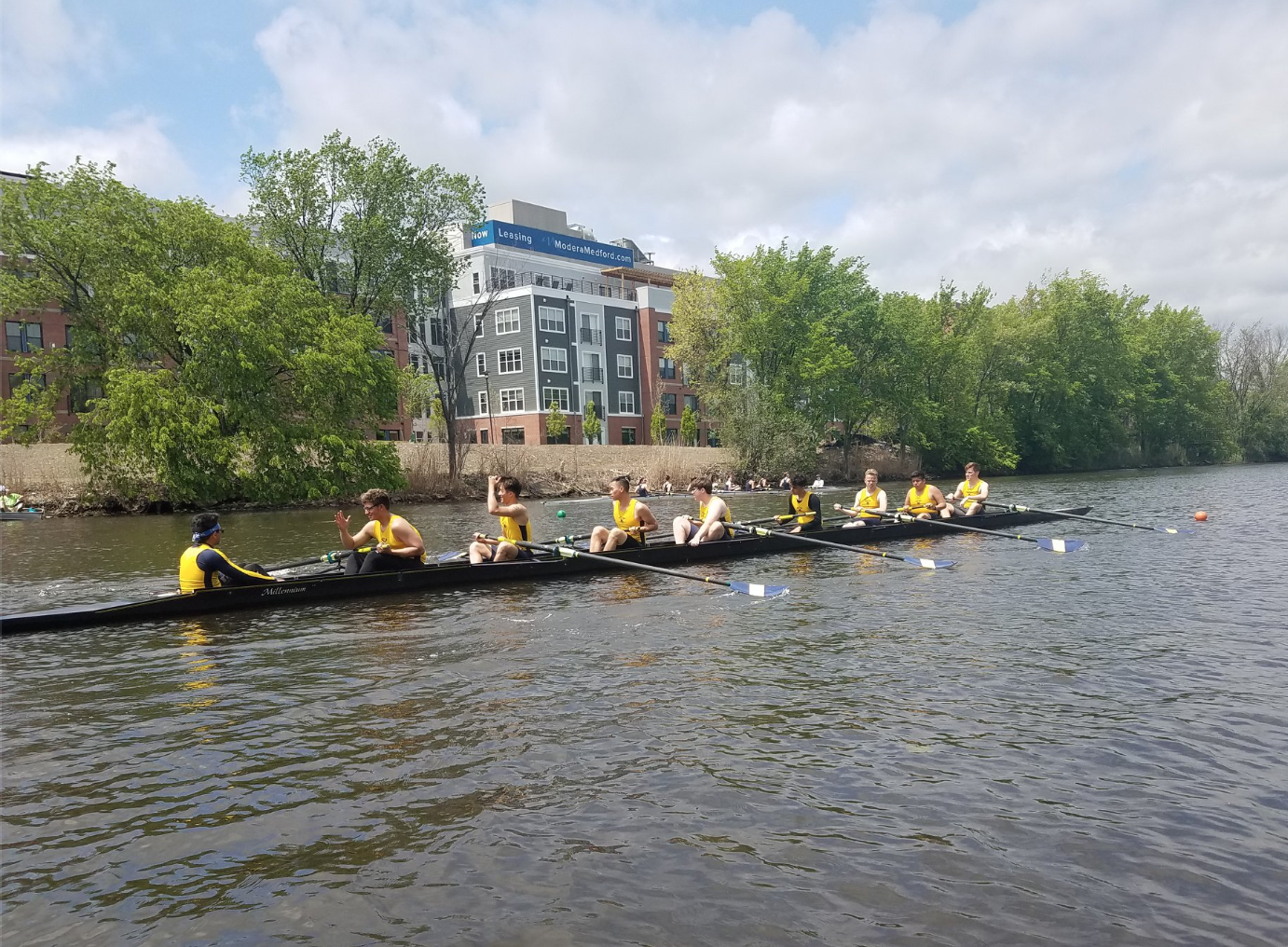
Once again to Mitchel, asking about efforts towards the Malden River. Typically, the Malden High Crew Team uses the river for regattas and practice, however due to pollution, every year the team makes an effort to clean the river themselves. Recently, the Friends of the Malden River recieved a $9,805 grant from the Massachusetts Environmental Trust as well as more grants from other organizations to carry out cleaning services. Alongside this, it was announced that Malden Works was awarded the $1,000 Norman B. Leventhal City Prize, a new interdisciplinary prize out of MIT aimed at catalyzing innovative urban design and planning approaches worldwide to improve both the environment and quality of life. Mitchel asks for plans about the Malden River, as well as possibly moving the Department of Public Works (DPW) building.
Christenson began by citing the 2017 Open Space and Recreational Plan found increased access to the Malden River as a community priority. Christenson explains that he is in support of creating a Malden Riverfront Overlay to allow residents to “connect” to the river by creating measures of landscaping, benches, signage or lighting. Chistenson notes that this would be accomplished through partnerships. He also said that he is “resigned to the fact that… we’re going to have to find a way to coexist” since Malden currently lacks infrastructure appropriate for the DPW.
Matheson then began with refuting Christenson’s statement about the Traffic Mitigation Committee, which he explains that as a full-time attorney with a family, Christenson is eager to say that he is failing to perform, however, as mayor, Matheson will be more efficient than his opponent. He also stated that the Traffic Mitigation Committee could not meet because they “couldn’t get quorum” because if the mayor does not support the forum or the quorum, it becomes “buried in Ordinance Committee.” He also stated that Christenson lobbied apartment developers for the Malden Hospital site despite 80% of residents responding negatively to residential development in that area. He also said that the Malden River is “a valuable asset that’s been neglected for too long” where his plans include redesigning the waterfront to become more attractive to residents and possible public water shuttle to Boston Harbor.
Question 10
Manong then posed the question about pedestrian safety as it remains an issue over the past few years, including pedestrians being killed. Concerns for pedestrians ultimately lead to a goal of promoting walking through Malden in which the Malden Walkability Committee endorsed “Malden Walks” signs seen throughout the city pointing out directions to popular Malden locations with the number of minutes needed to walk to the location. Manong asked whether the candidates would support an increasing number of diagonal crosswalks and the number of intersections that are no turn on red.
Matheson began by agreeing that pedestrian safety is an issue and that funding for streets are provided by the MRA where the mayor develops the budget and the council signs approval. Last year, he recalls that the council passed a “Drive-25” ordinance stating that the city-wide speed limit is 25 mph, and that residents may not know of the ordinance because the mayor’s office has not put signs in place. The issue of signs also applies to street sweeping, he explains, as people who are unaware of street sweeping are altogether paying a million dollars worth in tickets. He also agreed that diagonal crosswalks are heavily needed especially around elderly building because they are a “safe zone.” He also says that in order to reduce wait time, driver frustration, CO2 emissions, and road safety, Malden should utilize the USDOT’s intelligent signal timing.
Christenson then refuted the point of the Traffic Mitigation Committee that he has “never heard someone say that the reason they couldn’t meet is because they couldn’t get their colleagues to attend,” referencing an issue in leadership. Christenson explains that his plans are “what we’ve always been doing” in working with the community to create the Walkability Committee in 2012 that has lead to improvements on crosswalks, and revised the snow removal ordinance and three projects coming to a close that improve roads.
Question 11
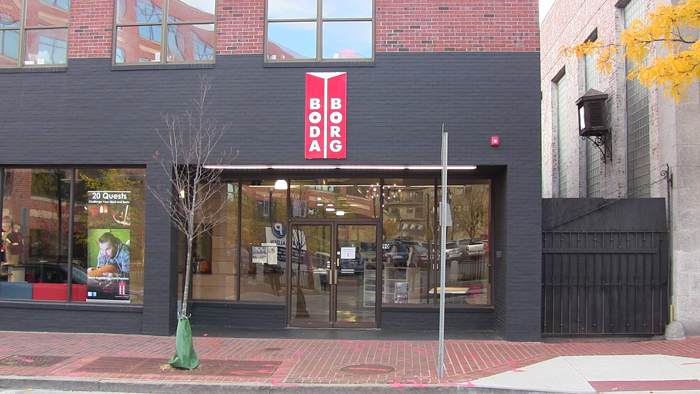
For his final question, Zhao returned to the topic of commercial developments explaining that he and his friends go out into Malden and “have fun” sometimes in places that are directed towards younger people. A lot of established businesses include the aforementioned gaming niche: Boda Borg, 8D Room Escapes and Board Games, Wanyoo and Bit Bar. He asked whether the candidates plan to bring more businesses and entertainment for young people.
Christenson stated, “easy, expand Boda Borg,” as the Swedish company announced that they will expand in the coming fall. He explained that Malden is “close to becoming known as a gaming district” since it houses numerous entertainment businesses that have grown over the past five years offering options like escape rooms, board games, computer games, physical and mental activities, and even old-school gaming. Christenson believes that “it is all coming together” and that being able to use the National Grid site would bring in young people to Malden.
Matheson then began by rectifying that “the National Grid site has contaminated soil so [he does not] think [you are] going to be seeing a hotel there.” However, he believes that with his previously mentioned plan “it could be our Assembly Row” since it is “poised” to become a business hub for Metro North, all it needs is a Mayor’s Office that will promote business. Matheson also returned to the topic of zoning brought up by Christenson and agreds with the Traffic Mitigation Committee that synching the traffic lights, and addressing the most deadly intersection in Malden will make the area safer for younger people.
Question 12
Sergiu Parfeni returned for his final question on the topic of qualified labor. Qualified labor refers to many businesses in Malden needing people with skills such as hospitality but also technical skills.
Matheson began by explaining the decision made years ago to have developers hire locally and hire more women, and hire minorities so that “the entire Malden Community benefited from the hiring” of developers. Additionally, the need for skilled labor can be addressed not only through working with the Chamber of Commerce and utilizing an Economic Development Officer but also through finding talented individuals and draw them to Malden by becoming more “business friendly” drawing on the idea that Malden was able to convince Hoff’s Bakery to relocate from Medford into Malden in 2015. The main reason Hoff’s Bakery moved, Matheson explains, is the tax plan created for the business by Malden in which they paid 20% of their full tax bill and gradually increased the amount they pay in tax by 20% for every year they stayed until they ultimately paid full tax. In order to help smaller businesses unlike Hoff’s, Matheson passed a $5,000 exemption on personal property tax that many businesses owners otherwise must pay when their net profits are under $10,000 since he believes Malden should “make it easier for people to start a small business.”
Christenson followed by acknowledging the efforts of Duffy, the Business Development Officer, as well as Malden City Councilor Peg Crowe for making Hoff’s Bakery available to Malden residents. His ”vision” of qualified laborers “create the vibe” that draw people into Malden, citing the low unemployment rate (of 3%) and really wishes that Malden continues to develop as it has over the past few years.
Question 13
For a final question, Mitchel asked about the Encore one million dollar mitigation money after the new Boston casino opened on June 23rd earlier this year. The recent addition of the new casino made for some changes in Malden as a new shuttle bus rolls through Malden Station as part of the Surrounding Community Agreement between the city and the casino. Mitchel asked about plans for using the mitigation money.
Taking the floor, Christenson acknowledged the work of Ron Hogan, Duffy and the community to come together on the topic, finally agreeing on a total of 19 million dollars over the span of the next fifteen years. The money will be used in the general fund and will be “appropriated through a transparent budget process” where already, $100,000 will be dedicated to non-profits. He also acknowledged that any further commitments about how the money will be used would be unreasonable and should be given based on the current time, and current needs of the city. Christenson pointed out that his opponent’s promise to use the mitigation money to address some of Malden’s problems is unreasonable “until [the Malden City Officials] know where [Malden is] at the time.” Ultimately, Christenson emphasized “a cautionary approach” and to work collaboratively to address the needs appropriately.
Following up, Matheson remarked that uncertainty about how money will be dealt with, “should scare the hell out of you” and that the money should benefit everyone. Focusing on roads specifically, Matheson argued that the mitigation money can address the needs to Malden on a large scale. He also cited the mitigation contract between Encore and the City of Malden describing that the money will be used at the discretion of the city towards infrastructure improvement that Malden believes to be necessary and suitable. He also pointed out that not many people attend budget hearings where the public have the opportunity to speak, and during his opponent’s time as Mayor, his budget was rejected only once and only when Matheson acted as City Council President.
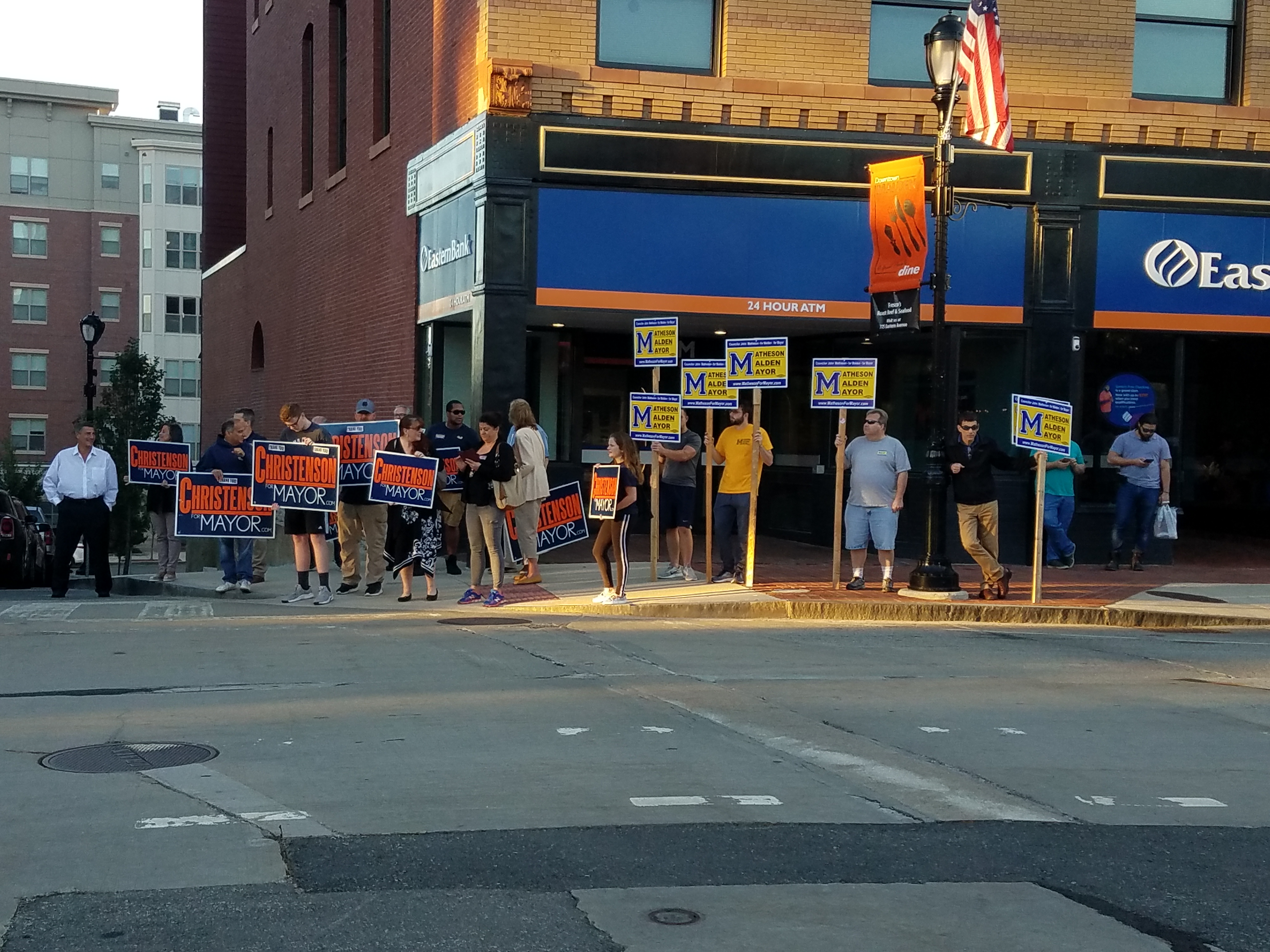
Question 14
Finally, Marcia Manong talked about the state of the roads which have been a concern “with large potholes and bumpy streets.” This topic has been previously addressed through the Complete Streets Initiative in 2016 aiming to making the community comfortable to reach destinations by walking, driving, bicycling, or taking public transportation despite the growing number of streets meant for cars. The policy currently has a possible 23 projects that can be pursued to improve roads detailed in the Prioritization Plan that are approved by MassDOT. Manong asked the candidates on how the “poor road conditions negatively affect the safety of our differently-abled residents.”
Matheson pointed out that Malden is over budget and over schedule on infrastructure projects. However, he acknowledges his opponent’s ability to be in compliance with the Americans with Disabilities Act (ADA). He remarked on differently-abled people’s needs for better side walks deserving “our first attention” which is best funded through the mitigation fund. On the topic of Surrounding Community Agreements, marijuana shops that are holding to Host Community Agreements entitle Malden to 3% of their gross revenue which can be used on schools and roads.
Finally, Christenson began by refuting that Matheson, being on City Council, should know that the initial mitigation money was spent on saving jobs, reflecting on his lack of desire to be involved in any committees this year, clarifying the process for using and distributing money. He explained that the concern for road conditions have been recognized by city engineer Yem Lip, City Strategic Planning Analyst Ron Hogan, and many others. He explained that the group has repaved over 30 miles of roads, and has been planning for another five year plan to continue repaving roads.
Marking the end of the debate, the candidates spoke directly to the audience about their plans, their opponent, and their priorities. Christenson, reading from his notes, remarks that “voters have a choice between two candidates who couldn’t be more different,” and almost as an illustration of this fact Matheson closes by going “off-script” and asks the audience to “let your voice be heard” this November 5th.

